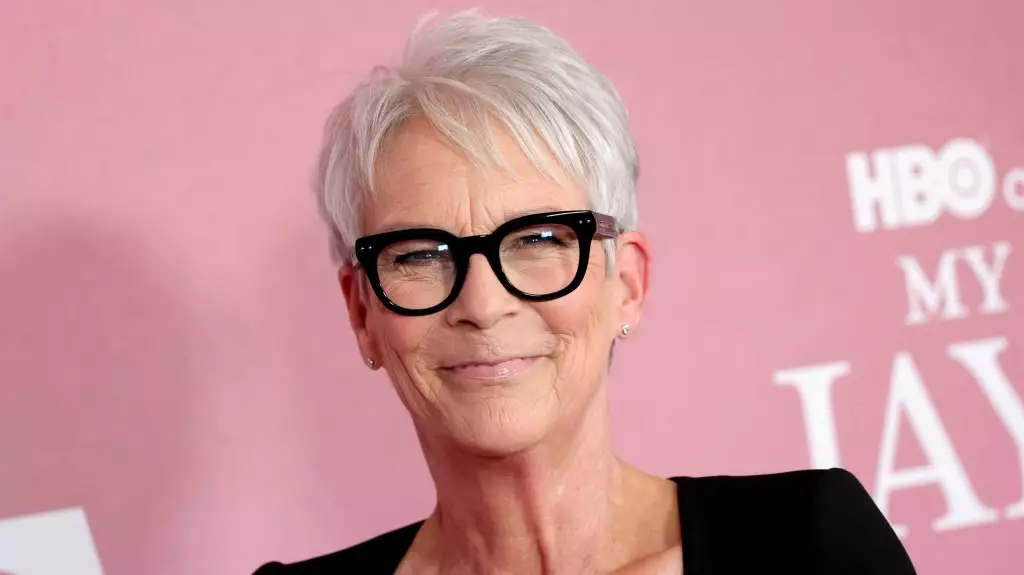In an era where youth is often commodified and used as a measuring stick of value, Hollywood’s treatment of aging actors unveils a disturbing paradox. Prominent figures like Jamie Lee Curtis are bravely speaking out against a systemic cultural failure that marginalizes talented individuals simply because of their age. This issue is not merely about aesthetics; it exposes a deeper, more insidious societal bias that equates worth with youthfulness. The industry’s relentless obsession with youthful appearances, coupled with the painful neglect of aging talent, speaks to a broader societal disregard for the intrinsic value that comes with experience, wisdom, and maturity.
Curtis’s reflections about her parents’ careers—Janet Leigh and Tony Curtis—highlight a painful cycle. Their success was ephemeral, and the shadow of ageism swiftly eroded their prominence. Her candid insights underline a systemic problem extending beyond individual experiences to a culture that punishes aging, especially in women, for simply existing outside the confines of youth. Her decision to “self-retire” is an act of silent protest against this injustice, a poignant statement on how societal and industry expectations pressure even the most accomplished to disappear quietly once they cross some invisible threshold.
This situation is symptomatic of a broader societal failure to appreciate the full spectrum of human aging. Instead of celebrating seasoned talents and leveraging their experience, Hollywood’s youth-centric model enforces a brutal rule: fade into obscurity once you’re no longer considered “marketable.” Such a mandate strips older actors of their dignity, perpetuating ageist stereotypes that seep into everyday life, reinforcing the notion that aging is inherently undesirable or unnecessary.
The Toxic Culture of Cosmetic Surgery and Its Societal Implications
Curtis’s vocal opposition to the rise of cosmetic surgery and societal obsession with artificially maintained youth exposes a deeper cultural malaise. Her dramatic “wax lips” statement becomes a powerful symbol against the disfiguring pursuit of eternal youth, especially among women. This metaphor is not merely a theatrical device; it is a stark critique of Hollywood’s, and society’s, misguided obsession with perfection. It echoes her belief that such superficial alterations contribute to a form of cultural self-destruction—what she describes as a “genocide” of natural human beauty.
The normalization of cosmetic procedures—bolstered by a relentless marketing machine and reinforced by AI-driven filters—creates a distorted reality. Instead of encouraging acceptance and celebrating diversity in aging, society rewards the contrived and the fake. Curtis’s frustration is rooted in a desire to confront this dangerous trend. The facades created by filters and surgical enhancements hollow out individuality and self-esteem, particularly among impressionable young women, leading to a cycle of dissatisfaction and disfigurement.
Her critique challenges us to reconsider what authenticity means in a digital age saturated with illusion. She rightly points out that the proliferation of filters and digital enhancements fosters an environment where natural beauty is considered outdated or inferior. This cultural shift prioritizes perfection over authenticity, leading to a generation of women who are disfiguring themselves to meet unrealistic standards set by Hollywood and social media.
The Need for a Cultural Shift Toward Respecting Aging and Embracing Realism
It’s clear that Hollywood’s obsession with youth isn’t just an industry flaw; it reflects the broader societal tendency to dismiss aging individuals—particularly women—as less valuable. Her candid voice acts as a rallying cry for change. It urges us to challenge not only the industry’s superficial standards but also the ingrained cultural values that reinforce age discrimination. Supporting older actors, valuing natural aging, and resisting the allure of artificial perfection are essential steps toward a more inclusive and humane society.
The industry must re-evaluate its priorities and recognize that talent, experience, and authenticity hold far greater worth than surface-level appearances. Aging should not be seen as a flaw but as a testament to a person’s journey and resilience. Hollywood, as a cultural mirror, should reflect the diversity of human experience instead of enforcing the narrow confines of perpetual youth. The onus is on us, as consumers and creators, to foster an environment that values real beauty and respects the dignity of aging.
Rather than succumbing to the pressures of superficiality, there is an urgent need to cultivate a new cultural paradigm—one rooted in compassion, respect, and genuine aesthetic diversity. Only then can Hollywood move beyond its entrenched ageist mentality and embrace a future where all individuals are celebrated regardless of age.
Curtis’s bold stance is more than just an actress’s protest—it’s a mirror held up to society, demanding introspection and change. The time has come to dismantle the harmful myths surrounding aging and to start valuing human beings for who they truly are, not how they appear fleetingly in the mirror of Hollywood’s unrealistic standards.


Leave a Reply